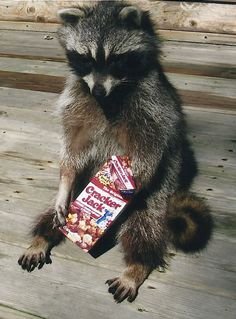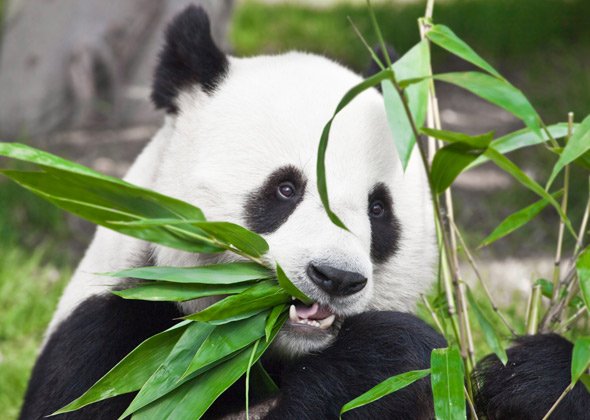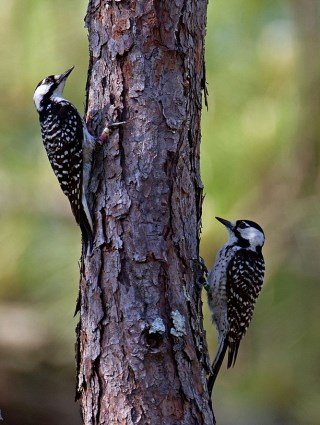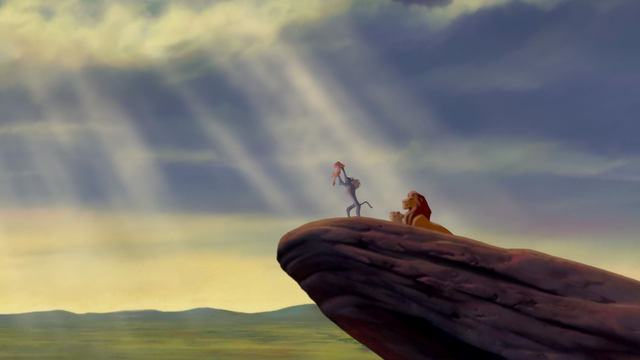The Risks of Specialization in the Natural World
We can generally group organisms into one of two major groups: the generalists and the specialists. Generalists tend to be very adaptive, able to survive using a wide variety of resources, and are often considered to be better equipped for survival. Specialists are evolved to rely only on a few necessary resources; they will not likely survive in the absence of these resources, but in their presence, they flourish. So, in terms of survival, is it better to be a generalist or specialist?
You can think of generalists and specialists in human terms. Imagine you have just moved to a new city and you are looking for work. If you are a generalist, you are a jack of all trades, and able/willing to do any sort of work to get by. More than likely, you will be able to do well and find a career quickly as you are very adaptable, making life in your new city easier. You may not be thriving and making an incredible salary, but you will get by. If you are a specialist, you can be considered a master of your field, a professional, and if you are able to find work in your career field, you can live a very comfortable, easy life with high pay. The problem you face is if there is no position available in that area of expertise, and you do not have the experience or qualifications to do any other job. Without a job to support you, you will not be able to afford life in that city, and you will have to move on to find work.
Many animals, especially omnivores and detritivores, are generalists, and can make use of a huge number of resources to survive. Raccoons are, to me, the most obvious, able to survive off a huge variety of foods, even garbage, to survive. This ability to has allowed them to survive in locations that would normally be uninhabitable (such as in cities, alongside humans), but their nature to make use of nearly any resource they can find eases the stress imposed by that environment. Should something happen (drought, flooding, fire, human impact, etc) and a particular resource becomes scare or wholly unavailable, these generalist species can continue surviving off of other, more abundant resources.
Specialist organisms cling to life, relying wholly on very few, or even a single resource. Their fate is tied to that of the required resource; should it become unavailable (competition, extinction, etc), then the reliant organism will not be able to survive in the same location. Many animals (including reptiles, of course) are highly specialized: The rainbow snake of Virginia has a specialized diet of American eels (a similar species called the mud snake relies on amphibians called sirens and amphiumas). Though they can, occasionally, feast on other prey in a pinch (frogs, tadpoles, salamanders), they cannot survive long-term without their unique prey (for this reason, these animals often do not survive in captivity and are not widely seen in zoos or private collections).
So why would any organism be a specialist if it puts such a burden on survival? Think again to our human example: many people specialize in a particular field for various reasons (salaries, occupational competition, personal interest, etc). Today, we might be seeing many people working towards careers in the computer sciences; if there are plenty of jobs (i.e., low competition) and it provides good pay (high survivability), then it makes perfect sense to specialize. Many specialized organisms are doing quite well; their required resource may be bountiful, they often don’t have much competition for their resources, and they can get by with little worry that the resource may be lost (imagine an endless supply of well-paying jobs in your field).
Unfortunately, in today’s world, human impact has driven many species to brink of extinction, and quite a few have been lost altogether. When it comes to endangered species, specialist organisms often present an added challenge to conservationists. Their inability to survive on a wide-variety of resources means that we need to make the most of those they require. If these resources themselves become endangered or extinct, they may be little to no hope for the species that rely on them. In Virginia, longleaf pine trees have been nearly wiped out due to logging and fire-control practices (these trees actually require fires to survive). The mature pine trees are the sole nesting sites for the red-cockaded woodpecker, which is in steep decline with the remaining trees. If the resources, in this instance the pines, aren’t saved, species that are reliant upon them, such as the specialist woodpeckers, will more than likely face extinction.
Returning to our working example, imagine that you are a specialized computer science professional. Maybe through some obscure, unforeseen disaster (EMP or something, you have fun with it), computers are pretty much wiped out. Without the computer science field, you have no skills or experience that could land you a job in any other field (a pretty radical example, but it’s to get the point across). Without that job, and your pay, you are not going to be able to get by.
So what does this mean? It means that everyone needs to look at big-picture conservation. We are either all-in or it doesn’t mean anything. We can’t just focus on one species, we have to look at where they fit in in the web of life. We can’t save the red-cockaded woodpecker unless we save the longleaf pine. We can’t save any endangered specialists unless we protect their required resources. Saying “Save the Whales”, means nothing if you’re not looking at the marine web of life that supports those animals. Conservation is not a small subject, and many people need to stop observing it through a small window. A single species can sustain or crash an entire ecosystem, and is our job to ensure that the natural world remains balanced…from the largest whale to the smallest plankton, nature is all connected.








Good information. Thank you!
I guess I am like the raccoon of steemit then, based off my posts. :D
I was thinking the same thing as I wrote it, how the concept can be applied to steemit! Some people do very well with the generalized, wide-topic posts, but I definitely find my science posts to be successful!
Interesting article. Looks like you enjoy your sciences. I have also endeavoured to do a science post
Upvoted and followed! Nice post!
Great blog as always. I would consider myself a generalist, i can do good in any type of situation, I can adapt to anything. But that makes me weaker in specialized department. I do think i have the edge because of adaptability. And just like in animal kingdom omnivores can survive no matter what.
Great parallels with human life! :)
Thank you! It's amazing to me how over-complicated some of these concepts can be, especially in science texts. They're not perfect analogies, but I think it paints a reasonably accurate picture for people with even the smallest amount of scientific experience